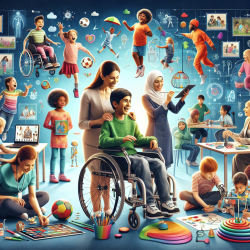The COVID-19 pandemic has profoundly impacted the mental health of resettled Bhutanese refugees in the USA. This vulnerable population faces unique challenges that exacerbate existing mental health issues. As practitioners, understanding these challenges and implementing research findings can significantly enhance the support provided to this community.
The Impact of Social Determinants on Mental Health
The research article "The Mental Health of Refugees during a Pandemic: The Impact of COVID-19 on Resettled Bhutanese Refugees" highlights the critical role of social determinants in influencing mental health outcomes. These include economic stability, neighborhood and physical environment, education, nutrition and exercise, community and social context, healthcare system, and legal system. Each of these factors contributes to the overall well-being of Bhutanese refugees and must be addressed to improve mental health outcomes.
Economic Stability
Economic instability is a significant stressor for Bhutanese refugees. Many face discrimination in employment due to language barriers and cultural differences. The pandemic has further increased unemployment rates, leading to financial insecurity and heightened mental health risks. Practitioners can advocate for employment support programs and provide resources to help refugees navigate unemployment benefits.
Neighborhood and Physical Environment
The living conditions of refugees often lack safety and accessibility to essential services. Practitioners can work with local communities to ensure safe housing and access to recreational spaces, which are vital for physical and mental well-being.
Education and Communication Barriers
Language barriers hinder access to education and essential services. Practitioners should promote language learning programs and provide translation services to facilitate better communication between refugees and service providers.
Cultural Sensitivity in Mental Health Support
Cultural stigma around mental health remains a barrier for many Bhutanese refugees seeking help. Practitioners must approach mental health care with cultural sensitivity, providing education about mental health issues in a culturally appropriate manner. Building trust within the community is crucial for encouraging individuals to seek help.
The Role of Online Therapy Services
TinyEYE's online therapy services offer a unique opportunity to bridge the gap in mental health support for Bhutanese refugees. By providing accessible therapy options that accommodate language preferences and cultural nuances, online platforms can play a vital role in delivering effective care.
A Call for Further Research
The research emphasizes the need for ongoing studies to explore innovative solutions tailored to the specific needs of refugee populations. Practitioners are encouraged to engage in further research initiatives that focus on developing comprehensive strategies addressing social determinants impacting mental health.
Conclusion
The challenges faced by Bhutanese refugees during the COVID-19 pandemic highlight the importance of addressing social determinants of health in mental healthcare provision. By implementing research findings and advocating for culturally sensitive approaches, practitioners can significantly improve the well-being of this vulnerable population.










